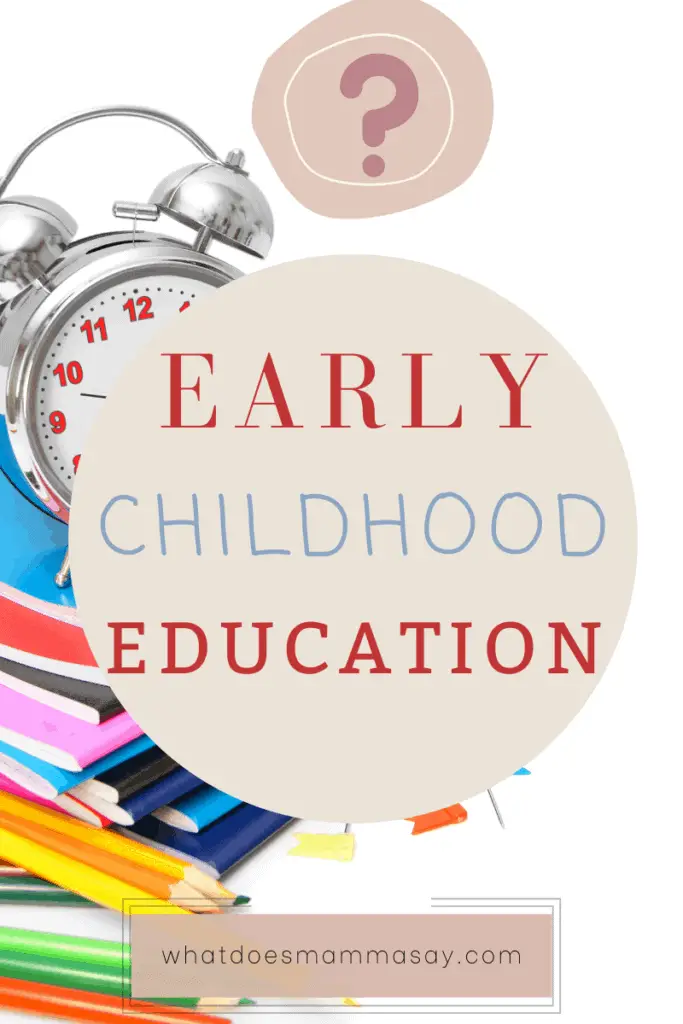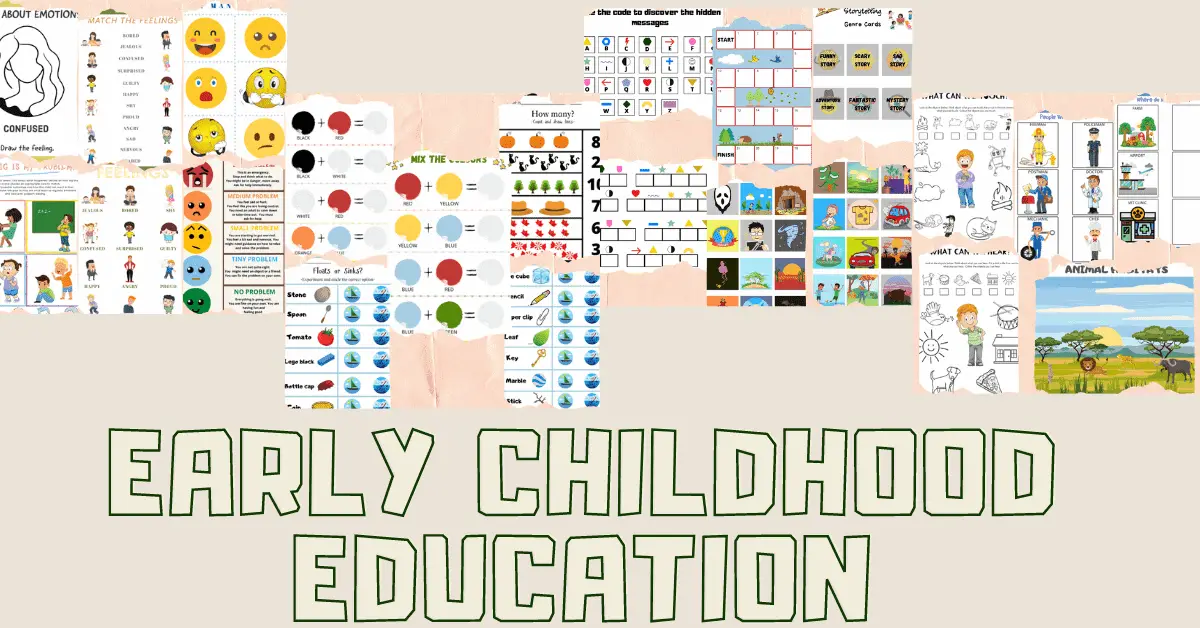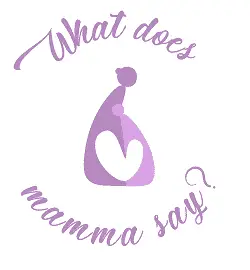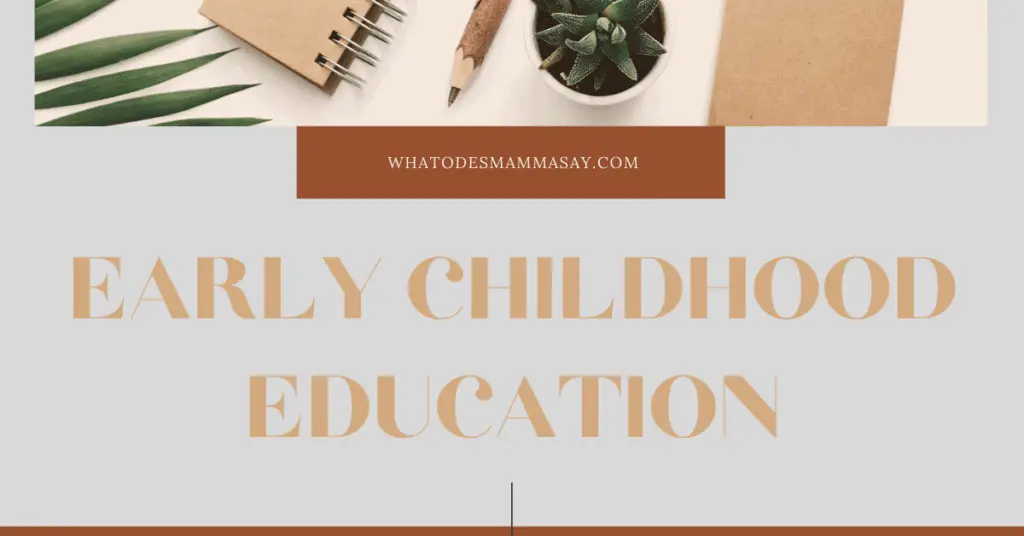When we talk about early childhood education, ECE, in the UK educational system, we talk about children from birth to 8 years of age. This is the most important period in a child’s development. Therefore as parents and educators, we must greatly focus on this stage.
Early childhood education encompasses development and learning standards that are used by many early years providers, not only the UK. As a parent and educator myself, I felt the need to inform parents of the importance of this stage in their children’s lives.
The aim of the articles that refer strictly to Early Years is to offer guidance and support to parents in finding the best possible information and resources to help their children during this period from birth to 8 years of age.

This post may contain affiliate links and I may earn a small commission when you click on the links at no additional cost to you. As an Amazon Affiliate, I earn from qualifying purchases. You can read my full disclosure here.
What is early childhood education?
This stage is centred around the fact that children learn by doing first and foremost and through meaningful interactions with others. Play and physical activity are at the core of this stage.
The main focus of practitioners is to help children reach the 7 areas of development. The Early Years Foundation Stage in the UK focuses on these 7 areas of development:
- Personal, social and emotional development
- Communication and language development
- Physical development
- Literacy
- Mathematics
- Understanding the world
- Arts and design
According to a 50-year study that took place in the USA, there is clear and strong evidence that demonstrates that early years intervention is essential and that we need ‘ a clearly defined curriculum approach that encourages lifelong dispositions to learning’ as stated by Jo Baseford in her article The early Years Foundation Stage: Whose knowledge, whose values.
Only a teacher can truly understand the weight of this mission bestowed upon parents. Teaching is a complex matter and if you add to this the complexity of a child’s mind and behaviour, you soon realise that parents’ task becomes herculean.
How to approach early childhood education at home
There are many different approaches in early childhood education, but we chose to focus on those that are easy to apply at home and that can address all 7 areas of development mentioned above.
Exploratory play
Children use all five senses to explore things and try them out for themselves. In exploratory play the main focus is on experiences: children are engaged with the people, resources and the environment around them.
Therefore they must be given opportunities to explore their understanding and knowledge of the world.
Children start to use exploratory play from the first weeks of their lives. It has been observed that it stimulates neural connections and helps develop problem-solving skills and decision making.
Moreover, there is a clear connection between early exploration and later cognitive development ( P. Muentener, E. Herrig, L. Schulz )
Key ideas
- hands-on experiences: messy play, explore materials, crafts, visual and noises
- opportunities to explore
Play-based learning
This theory has been around since Plato and it has numerous benefits: increases numeracy, literacy, classification, spatial-temporal understanding, mind enhancement has been observed, visible effects on language skills, influences adult moral reasoning.
Jean Piaget stated that we should try to develop creative and innovative minds, capable of discovery from the preschool age on throughout life. According to Piaget, there are four stages of cognitive development:
- sensorimotor: from birth until 2; a child can only experience the world around him through the five senses and movement
- preoperational stage: between 2 and 7 years of age, from when the child learns to speak and add pretend to their play until the child starts to use his reasoning skills and asks more complex questions
- concrete operational stage: until the child is 11; children are more aware of their own thoughts, they classify objects and can deal with mathematical problems; tend to become less egocentric
- formal operational stage: from 11 to 18 or later; children develop logical thinking and abstract reasoning; they now have the ability to think about their own thoughts and monitor them
By understanding these stages, educators and parents alike can better design activities and make use of play as a means to develop cognitive skills.If you want to understand more and read further, this article on cognitive development and play explains it very clearly and briefly.
Key ideas
- understand what each age represents in terms of skills
- understand the benefits of play and make use of it
Interaction approach
Lev Vygotsky believed that learning is a social process and parents, educators and caregivers have a crucial role in a child’s higher psychological functions.
He stated that social interaction within family and with members of the community is the main way in which children acquire behaviours and cognitive processes. He says children are apprentices that learn from those with more experience.
Therefore children learn by constantly interacting with adults, in collaboration with them and under their guidance. The role adults play in teaching children is essential in helping children gain a voice of their own.
We must be present and be aware of the fact that all our instructions, our playful activities and language have a crucial role in a baby’s and child’s development as they represent ways to access “the intellectual world of people around them”. (L. Vygotsky, 1934)
Dramatic play
Make-believe play helps children develop abstract thinking, literacy, math, even social studies in a natural manner. Children will reinvent scenes that they have seen in books, films, in the house, at a gas station, department store, library etc.
According to Marie E. Cecchini MS through dramatic play children use and develop 6 skills:
- role-playing– they mimic someone’s behaviour and verbal expressions
- use of props– at first they will use realistic materials, but later they will use material substitution
- pretending – they reenact what they witness and some children even engage in fantasies that aren’t based on real-life experiences
- attention span – at first they will engage only for short periods of time but as they progress the period of time spent involved in such activities grows because they are adding more actions and words
- social skills – dramatic play promotes social skills through interaction with peers and adults. As they grow and develop their social skills, they will relate to each other from the perspective of the roles they are assuming
- communication – children use both speaking and listening skills in dramatic play; they learn how to choose the right words and practice words they have heard other people use
Key ideas
- increases understanding of the world around them
- helps develop social and personal skills
Scaffolding
When scaffolding, a parent or educator should offer the child guidance and support when learning something new or slightly above what he can do; as the child learns the skill, the support should be gradually diminished until the child can do it on his own.
Read more about teaching approaches and effective learning to better understand how to help children learn.
Scaffolding works better by making suggestions, asking probing questions(What do you think would happen if..?) using demonstrations, offering encouragement, introducing a prop (various resources and objects to help in the process), offering multiple-answer questions or providing support (discuss the steps needed)
Key ideas
- apply the methods above and choose the best one according to age (babies-use demonstrations, toddlers – introduce a prop and offer encouragement etc)
- use scaffolding only until the skill acquisition has taken place
Emergent literacy
Emergent literacy refers to the skills, attitudes, and knowledge that a child develops in relation to reading and writing throughout the early childhood period, in other words starting from birth and until formal instruction.
Therefore parents and caregivers need to focus on aspects of oral language, basic alphabet knowledge, phonological awareness, and helping children understand that print carries meaning. Emergent literacy influences greatly the eventual development of literacy skills.
It is essential that you expose children to oral instances (talk to them constantly) and read to them rather sooner than later. The sooner, the better. This report by Save the Children offers great insight into emergent literacy.
Read more about Emergent Literacy, and discover 12 Hands-on Activities to teach toddlers letters.
Active learning
Active learning involves children doing things and thinking about what they are doing. It promotes information retention and motivates learning. There are many ways in which a child can learn actively:
- teach math using real-life situations
- involve the child in a community event
- teach them to be active listeners
- use dramatic play to teach feelings/abstract notions
- teach problem-solving
- choose activities that involve discovery and surprises
- get children involved in cooperative learning
- read a story and have them draw a scene
Our mission and vision to help parents

If a teacher after 5 years of educational training and 7 more years of continuous professional development finds difficulties in teaching her own toddler, then we can imagine that other parents feel the same strain, if not greater. So one day we found ourselves with a mission and a vision!
We realized we should make good use of the thousands of games, worksheets, and activities that we used in our 21 years of combined teaching experience. And we decided to offer you simple, efficient, and tested resources to help your child’s skills grow and flourish. These resources will address specific skills necessary in the 7 areas of development mentioned in the article:
- Personal, social and emotional development
- Communication and language development
- Physical development
- Literacy
- Mathematics
- Understanding the world
- Arts and design
We aim to become your go-to resource when teaching a new skill or enhancing it. Your go-to resource when in need of guidance and information. Your source for personalized worksheets and advice, and your weekly resource bank of ideas.
How we aim to help parents
Our mission is to focus on creating articles and resources that benefit not only the child but also the parent. A well-informed parent is a helpful parent! So our mission is two-fold: to educate the child and inform the parent.
We aspire to do this by:
- designing materials to teach age-specific skills
- gathering resources that address a specific area of child development
- using play-based learning and offering you access to the best games and activities that proved efficient in our teaching journey
- creating free printables for easy use
- gathering useful and comprehensive information to answer your queries or inform you of essential aspects of early childhood education
- offering you the possibility to ask for personalized worksheets or/and advice for your child
- keeping our inbox open for your questions and struggles and offering advice and guidance
Conclusions
Early childhood education is the period in which a child goes through the most rapid phase of growth and development. Their brain develops faster than at any other stage in their lives.
This is when we must lay the foundations for their social skills, self-esteem, cognitive development, world perception, and moral outlook. We are on a journey of helping children become good learners.
We aspire to guide parents on this fascinating journey of growth and offer them the support needed in nurturing their child’s uniqueness.

Hi. I am Monica, an experienced ESL teacher and early years student, mother to a preschooler and passionate reader.




In another life I was a preschool teacher. This is a great guide, thanks!
a very comprehensive and informative post.. loved this; i took a couple of child development classes years ago when my older one was in preschool and i know it helped me a lot
This is a detailed post about Early childhood education and well researched too. I am glad that I found it at the right time when my child is in that phase of Early childhood Education
This is an interesting read. My son will start going to school soon and I am not really sure what to expect or consider. Thank you for sharing an easy to read and understand background on what early childhood education is all about.